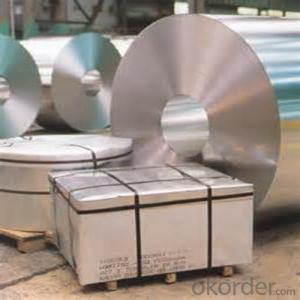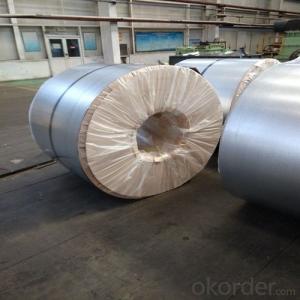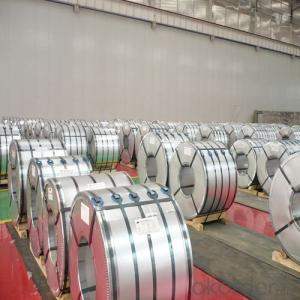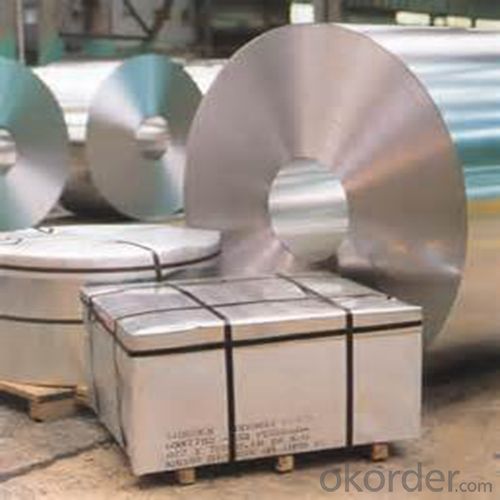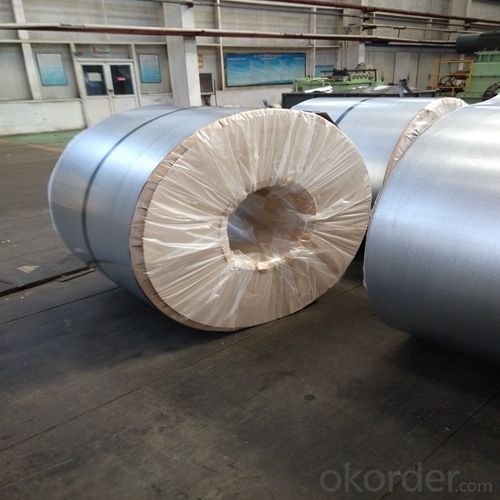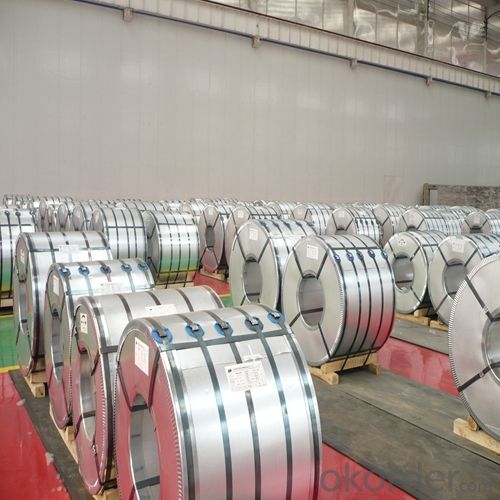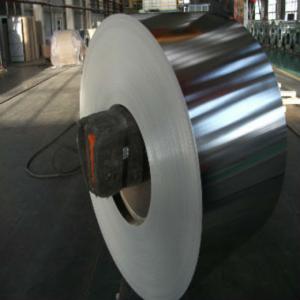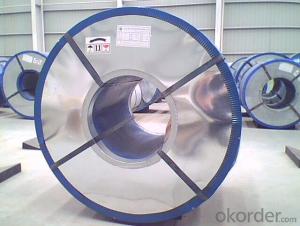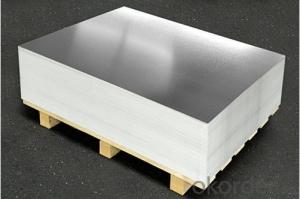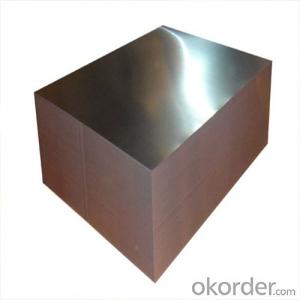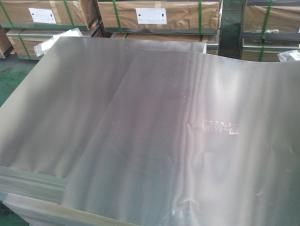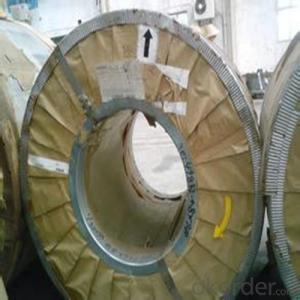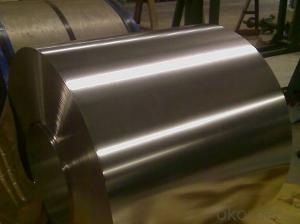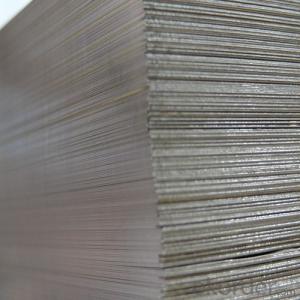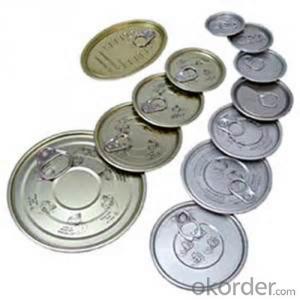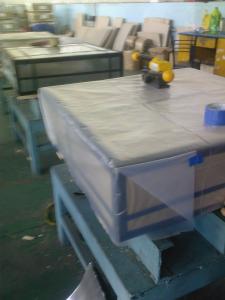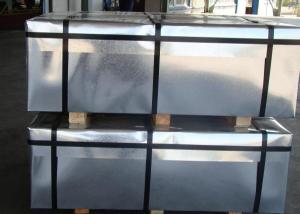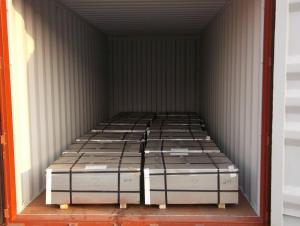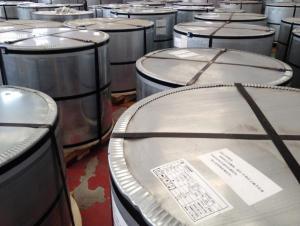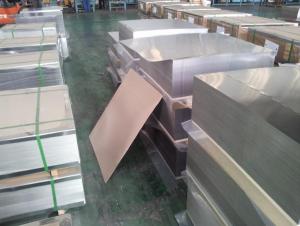Tinplate ETP of High Quality for Metal Containers 0.38 T3BA
- Loading Port:
- Tianjin
- Payment Terms:
- TT OR LC
- Min Order Qty:
- 50 m.t.
- Supply Capability:
- 10000 m.t./month
OKorder Service Pledge
OKorder Financial Service
You Might Also Like
1.Structure of Tinplate ETP of High Quality for Metal Containers 0.38 T3BA Description
Electrolytic Tinplate, is one thin steel sheet with a coating of tin applied by electrolytic deposition. Tinplate made by this process is essentially a sandwich in which the central core is strip steel. This core is cleaned in a pickling solution and then fed through tanks containing electrolyte, where tin is deposited on both sides. As the strip passes between high-frequency electric induction coils, it is heated so that the tin coating melts and flows to form a lustrous coat.
2.Main Features of the Tinplate ETP of High Quality for Metal Containers 0.38 T3BA
Appearance – Tinplate is characterized by its beautiful metallic luster. Products with various kinds of surface roughness are produced by selecting the surface finish of the substrate steel sheet.
Paintability and printability – Tinplates have excellent paintability and printability. Printing is beautifully finished using various lacquers and inks.
Formability and strength – Tinplates have got very good formability and strength. By selecting a proper temper grade, appropriate formability is obtained for different applications as well as the required strength after forming.
Corrosion resistance – Tinplate has got good corrosion resistance. By selecting a proper coating weight, appropriate corrosion resistance is obtained against container contents. Coated items should meet 24 hour 5 % salt spray requirement.
Solderability and weldability – Tinplates can be joined both by soldering or welding. These properties of tinplate are used for making various types of cans.
Hygienic – Tin coating provides good and non toxic barrier properties to protect food products from impurities, bacteria, moisture, light and odours.
Safe – Tinplate being low weight and high strength makes food cans easy to ship and transport.
Eco friendly – Tinplate offers 100 % recyclability.
Tin is not good for low temperature applications since it changes structure and loses adhesion when exposed to temperatures below – 40 deg C.
3.Tinplate ETP of High Quality for Metal Containers 0.38 T3BA Images
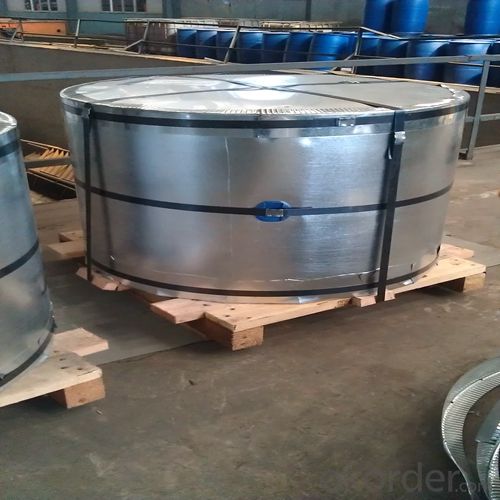
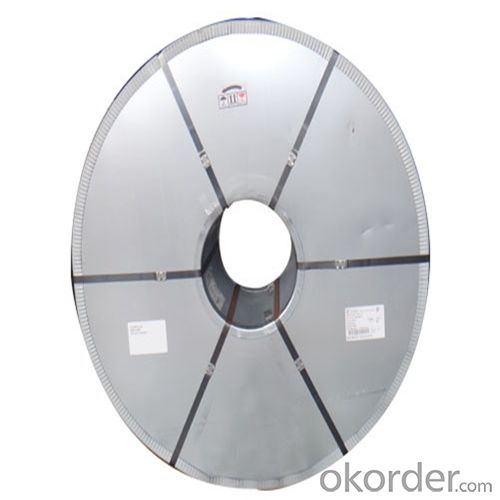
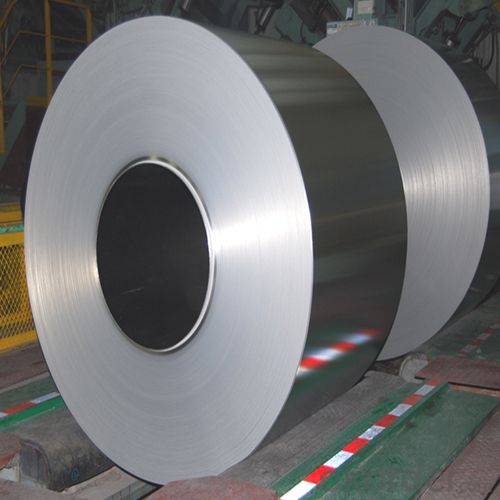
4.Tinplate ETP of High Quality for Metal Containers 0.38 T3BA Specification
Standard: ISO 11949 -1995
Material: MR
Thickness:0.38mm
Width: 600mm -1150mm
Temper: T3
Annealing: BA
Coil Inner Diameter: 508mm
Weight: 6-10 tons/coil 1~1.7 tons/sheets bundle
Passivation:311
Oil: DOS
Surface: Finish
5.FAQ of Tinplate ETP of High Quality for Metal Containers 0.38 T3BA
- How are the tinplates specified?
The tinplates are specified as per the steel base, extent of tempering, the coating weight, annealing method and the surface finish.
- How many types there are for base steels?
The base steels are of three types: Type MR, L, D
- Q: How is tinplate coated with organic materials for specific applications?
- Tinplate is coated with organic materials for specific applications through a process called organic coating or lacquering. The tinplate is first cleaned and prepared to ensure proper adhesion of the organic coating. Then, a layer of organic material such as epoxy, polyester, or acrylic resin is applied to the tinplate surface using various methods like coil coating or spray coating. This organic coating provides protection against corrosion, enhances the tinplate's appearance, and allows for customization based on specific requirements of the application.
- Q: What are the common thicknesses of tinplate?
- The common thicknesses of tinplate range from 0.13mm to 0.49mm, with the most commonly used thicknesses being 0.18mm, 0.20mm, and 0.23mm.
- Q: How is tinplate used in the manufacturing of electrical components?
- Tinplate is commonly used in the manufacturing of electrical components as it provides a protective coating that prevents corrosion and enhances durability. It is often used to make casings, enclosures, and connectors for various electrical devices, ensuring efficient and reliable functioning of the components.
- Q: What are the advantages of using tinplate for cosmetic packaging?
- Tinplate offers several advantages for cosmetic packaging. Firstly, it provides excellent protection against moisture, air, and sunlight, ensuring the longevity and quality of the cosmetic products. Secondly, tinplate is highly durable and resistant to corrosion, making it ideal for storing and transporting cosmetics without the risk of damage or contamination. Additionally, tinplate can be easily molded into various shapes and sizes, allowing for creative and attractive packaging designs. Lastly, tinplate is recyclable, making it an environmentally friendly choice for cosmetic brands aiming to reduce their carbon footprint.
- Q: How does tinplate compare to plastic packaging?
- Tinplate packaging offers several advantages over plastic packaging. Firstly, tinplate is more durable and resistant to impacts, ensuring better protection for the product inside. It also provides better barrier properties, preventing oxygen and moisture from reaching the product and extending its shelf life. Additionally, tinplate is recyclable, making it a more sustainable choice compared to plastic, which is often difficult to recycle. Lastly, tinplate packaging has a premium look and feel, enhancing the overall visual appeal of the product on the shelves.
- Q: Can tinplate packaging be used for kitchen utensils?
- Yes, tinplate packaging can be used for kitchen utensils. Tinplate is a durable material that is resistant to corrosion and has good thermal conductivity, making it suitable for various kitchen utensils such as cans, containers, and even cookware.
- Q: Can tinplate be embossed?
- Yes, tinplate can be embossed.
- Q: What is the average lifespan of tinplate packaging?
- The average lifespan of tinplate packaging can vary depending on various factors such as the storage conditions, usage patterns, and level of care. However, with proper maintenance and handling, tinplate packaging can typically last for several years or even longer.
- Q: How does tinplate packaging contribute to food safety?
- Tinplate packaging contributes to food safety by providing a protective barrier that prevents contamination from external factors such as light, air, and moisture. This helps to preserve the quality, freshness, and nutritional value of the packaged food. Additionally, tinplate packaging is highly resistant to corrosion, ensuring that harmful substances do not leach into the food. Its durability also prevents physical damage during transportation and storage, reducing the risk of contamination.
- Q: How is tinplate used in the manufacturing of household appliances?
- Tinplate is commonly used in the manufacturing of household appliances as it provides a protective coating to prevent corrosion and enhance the durability of the appliances. It is often used as a primary material for the outer casing, doors, and panels of appliances such as refrigerators, washing machines, and ovens. The tin coating also gives the appliances a smooth and attractive appearance, making it a popular choice in the industry.
Send your message to us
Tinplate ETP of High Quality for Metal Containers 0.38 T3BA
- Loading Port:
- Tianjin
- Payment Terms:
- TT OR LC
- Min Order Qty:
- 50 m.t.
- Supply Capability:
- 10000 m.t./month
OKorder Service Pledge
OKorder Financial Service
Similar products
Hot products
Hot Searches
Related keywords
